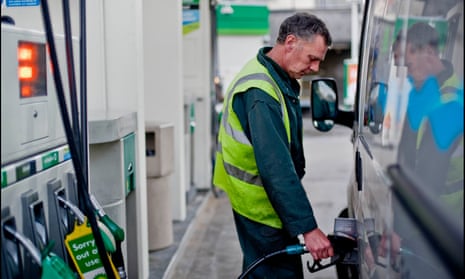Britain’s biggest supermarket has warned that dearer food prices triggered by the plunge in the value of the pound will have a lethal impact on poor families worst affected by the expected jump in inflation over the next two years.
Although a price war among the leading food retailers has so far blunted the impact of more expensive imports on grocery bills, Tesco’s UK chief executive, Matt Davies, said rising prices would be “toxic” for consumers if stores found that they had to pass on extra costs.
Official figures from the Office for National Statistics showed the annual inflation rate rising from 0.6% to 1% in September, its highest for almost two years.
The ONS said the cost of living had yet to be much affected by the drop in the value of the pound seen since the EU referendum, but the Bank of England, the International Monetary Fund and City economists believe that inflation will rise above the government’s 2% target in early 2017 and will reach at least 3% by the end of the year.
Researchers at the Institute for Fiscal Studies thinktank, said the decision by the government in the 2015 summer budget to freeze welfare benefits for the whole of the current parliament meant that 11.5 million families would be an additional £2 a week worse off as a result of higher than anticipated inflation.
The IFS said that families already stood to lose £260 a year as a result of George Osborne’s attempt to reduce the UK’s welfare budget, but they would now see their real incomes drop by £360 a year.
Davies said: “Everybody should be very, very clear how damaging food inflation is to the economy, to retail businesses and manufacturing businesses and how lethal it could be for millions of people struggling to live from week to week.”
He spoke out after Tesco became embroiled in a public spat with one of its main suppliers, Unilever, after the maker of brands including Marmite and Persil demanded an across the board 10% rise in prices in light of the devaluation of the pound after the the EU referendum.
The two companies reached an agreement on Friday after it emerged that Tesco was running low on stocks of more than 20 popular Unilever brands because the supplier halted deliveries when the supermarket would not agree to its price demand.
Davies, who was speaking at the Big Debate conference organised by grocery industry body IGD, said it was clear there were inflationary forces in the UK after the Brexit vote but would not say whether they would feed through to price rises on supermarket shelves.
“Our role is to do everything we can do to prevent food inflation which is not good for business and highly toxic for consumers,” said Davies, who joined Tesco from car parts and bicycle retailer Halfords 18 months ago.
City analysts warned that the jump in consumer prices last month marked the first of many increases that would push inflation towards 3% next year.
Some said it was clear weaker sterling was having an effect, especially on the rising cost of imported clothes and footwear, though the ONS played down the overall impact, saying there was no “explicit evidence” it was having a significant impact on consumer prices.
Andrew Sentance, a former member of the Bank of England’s monetary policy committee, which sets interest rates, said: “Higher import prices are feeding through to consumers because of the fall in sterling since the EU referendum.
“This latest rise, however, is just the tip of the inflationary iceberg that is coming our way.”
Inflation hovered around zero during 2015 but has been on a gentle upward trend since the turn of the year. Analysts had been expecting a slightly smaller increase to 0.9% in September, but stressed that further increases were in the pipeline in coming months as last autumn’s falls in energy prices ceased to drag down the annual inflation rate.
The increase in the cost of living was widely forecast after an 18% fall in the value of sterling since the Brexit vote on 23 June.
The ONS said food prices dipped slightly in September and the cost of household goods also fell. But this was more than offset by higher petrol costs relative to last year and clothing, especially womenswear.
Last week, the Bank of England governor, Mark Carney, said the Bank could tolerate “a bit” of an overshoot against its 2% inflation target to help economic growth and employment.

Comments (…)
Sign in or create your Guardian account to join the discussion